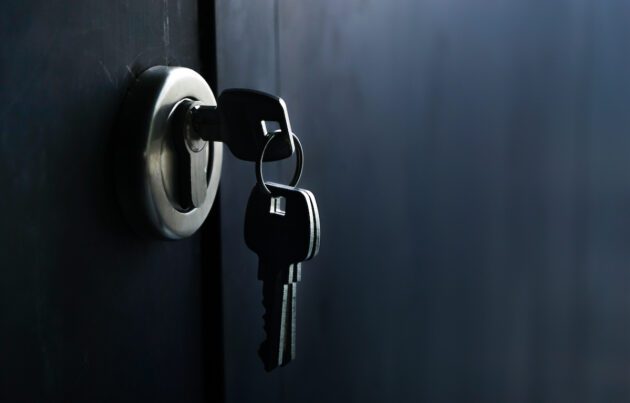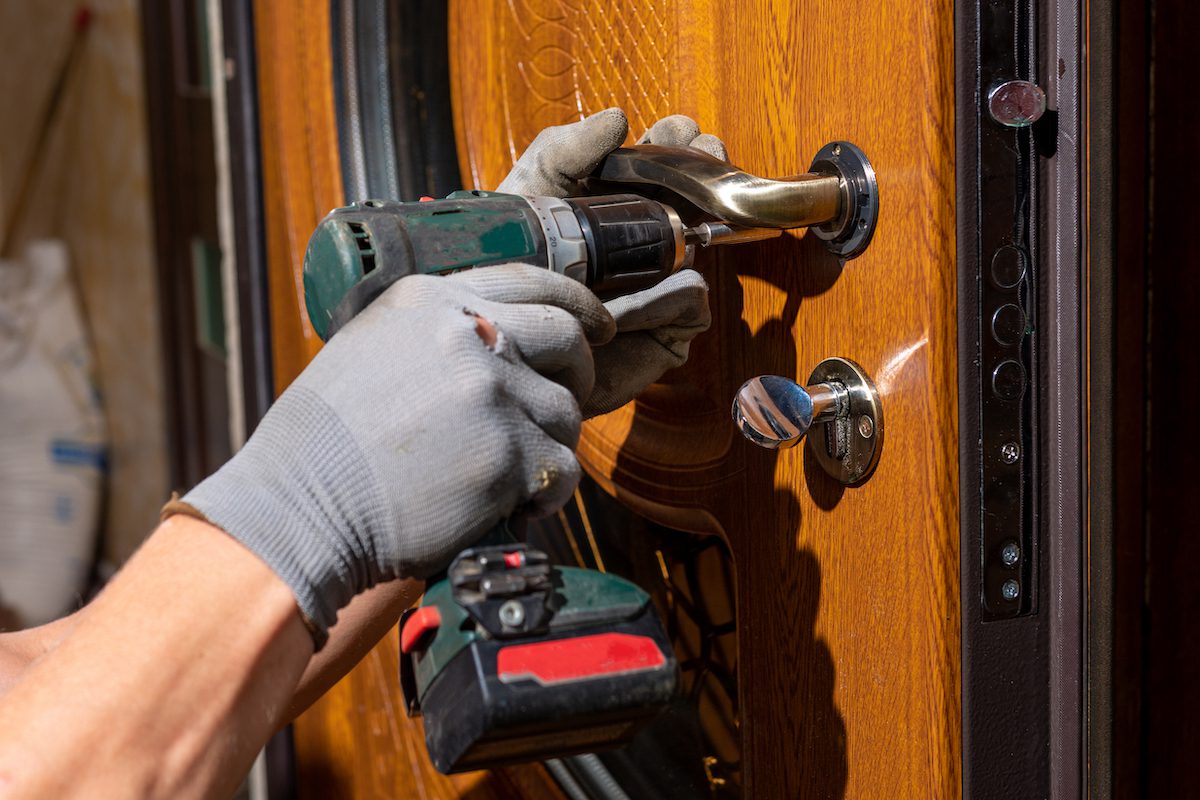Can a Tenant Change the Locks Under Any Circumstances?

It's a situation no landlord wants to experience. Your tenant isn't at home, and you need to gain access to their apartment, with or without prior notification. You grab your keyring and arrive at their front door with an expectation to enter. But what you find is a new lock, one for which you do not have access.
Whether it's for scheduled maintenance, repair work, a welfare check or an emergency like a gas leak, a landlord needs to have proper and legal access to their units.
What happens when a tenant changes the locks without a landlord's permission? What are the tenant's rights, the property manager's rights and where do they intersect? Can a tenant change the locks on their apartment and under what circumstances?

Why a tenant would change their locks
Without regard to the legality or contractual allowances, there are several reasons a tenant would change their locks without help or permission from a landlord. It can be with intent, with haste or simply without realization. There are a few common reasons.
Immediate security risk
If a tenant loses their keys or has a purse stolen, they may need to change locks immediately. And if the landlord is not available or doesn't respond to the request for a replacement, the tenant might take it upon themselves.
Increased crime
If there is a rise in crime in the neighborhood or the area has experienced a rash of break-ins, a tenant might feel the need for increased security. The tenant might install a deadbolt or other mechanism without realizing it will impede a landlord's access.
Landlord harassment
While the overwhelming majority of landlords are professional and respectful, there are some that are not. If a tenant feels they are being harassed by a landlord who continually enters the unit without notice or permission, they may feel unsafe. If these actions persist, a tenant may feel no option but to change the locks.
Smart technology
Smart home technology is having a moment. A tenant might want to replace a standard lock with a smart lock or fingerprint-enabled lock for added ease and security. And they may do so without realizing it may restrict a landlord's ability to enter when necessary.
Aesthetics
A tenant may merely want a nicer, newer lock and simply not consider needing to ask permission.

Can a tenant change the locks?
Are tenants allowed to change the locks of their own choosing? The short answer is: It depends. A tenant's ability to change their locks without advance notice or permission from the landlord is both a legal and contractual issue.
The contractual issues
A rental occupant takes over many of the legal rights associated with property ownership. But they are still obligated to abide by the terms of their lease. The legalities of changing locks vary by state (see below). However, in most circumstances, the letter of the lease reigns first.
Most lease agreements state that tenants cannot make major changes to the rental unit without permission. And changing a lock or a front door is certainly a major change. Regardless, landlords should specify in a lease that locks cannot be changed without permission in all circumstances. This is true regardless of state laws.
The legal issues
Aside from lease obligations, there are legal and statutory issues to consider. In states that don't allow the changing of locks without permission, a renter doing so could be regarded as “criminal damage," even if no actual damage occurs. Such actions could be considered modifying the unit without consent. A tenant changing a lock could even incur damage to the front door, resulting in additional cost to the property owner.
However, several states do allow tenants to change locks as long as they inform the property owner and immediately provide keys. In a number of states, a tenant cannot be fined for changing a lock without permission if they provide an updated key when requested.
As mentioned, the legal issues when tenants change the locks vary state by state. Some examples include:
- California: Tenants are free to change locks on rental property without providing the landlord with a key. However, the landlord may file an unlawful detainer action to retain access.
- New York: Residents can install additional locks (but not replace the primary lock) and must provide a key upon request of the landlord. As well, landlords cannot charge tenants for lock replacement.
- Arizona: Tenants must receive permission to change a lock, but also must cover the cost of the lock and installation
- New Jersey: Renters can change locks at their discretion and do not need to provide keys to the landlord unless a lease agreement states otherwise
- Alaska: Leaseholders must obtain written permission to change locks and provide a landlord with new keys
- Nevada: There are no state regulations covering the changing of locks; it depends on the lease language
Check with your particular state to see what rights a tenant has for changing the locks.
Who is responsible for the cost
There are three basic scenarios for a lock change: changed by the landlord, changed by the tenant without the landlord's permission and changed by the tenant after notifying the landlord. But who is responsible for the costs incurred?
In most cases, the landlord should pay for the costs of changing a lock. When a property owner or manager changes locks between tenants, for extra security or for aesthetic reasons, that is a capital improvement and the landlord's responsibility. If the tenant requests the landlord to change the locks for a legitimate reason, that is the landlord's duty as well.
However, if the tenant changes the locks without notifying or receiving authorization from the landlord, the tenant should sustain the cost. Any fee of an extra key to provide the landlord should come from the tenant as well.
And if the tenant changes the locks on their own and damages the door or frame, that is a cost that should be passed onto the tenant or taken from the security deposit upon move-out. The tenant can also be charged for a replacement lock if they fail to preserve the original fittings.
If a tenant loses their keys and requests a lock change from the landlord, it is at the landlord's discretion if that should be the tenant's obligation or not.

What to do if your tenant changed locks without permission
If you discover that a tenant has changed the locks without prior authorization, what do you do next? The first step is to notify the tenant that you are aware of the change, reiterate to them any relevant portions of their lease or state law and request access. In most cases, they must provide you with a spare key or code details. All this should be within the confines of the rules and regulations of your state, which can vary widely.
It's best to give the tenant the benefit of the doubt. There is a good chance they were unaware they made the change counter to the lease. Inform them of any costs they may have incurred and provide a timeframe for providing an extra key. If the new lock isn't up to standards, they may be charged with changing the lock back. Document all interactions.
If your property is in a state where tenants are allowed to change the locks at their discretion, the landlord is most always allowed to deduct the costs of replacing it upon move-out from the security deposit.
Locks and the tenant relationship
In the end, whether a tenant can change the locks comes down to the individual circumstances, including whether permission is requested, the details of the lease and local regulations.
The relationship with the tenant is also a factor: An existing, working relationship between landlords and renters can resolve many issues without conflict. And most tenants will understand their obligations and responsibilities. Safety is always the bottom line.

